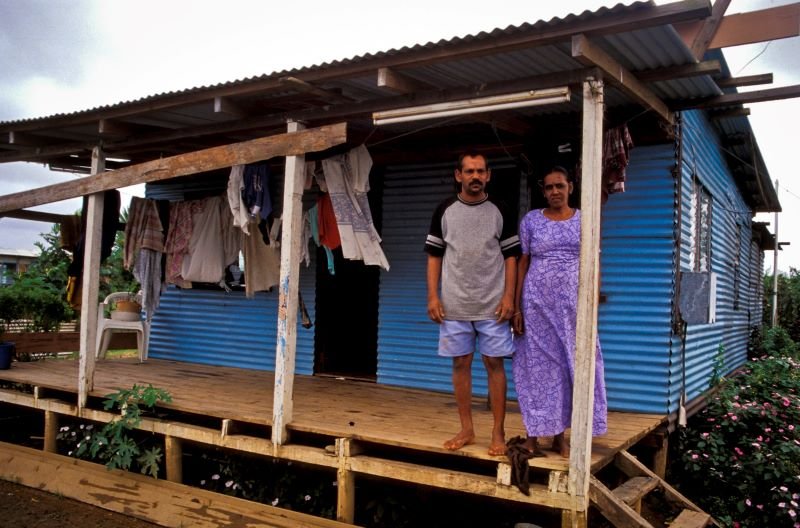IN FOCUS: SOCIAL PROTECTION FOR SHOCK RESPONSE IN PACIFIC AND TIMOR-LESTE
In focus: Social protection for shock response in Pacific and Timor-Leste
Social protection systems in the Pacific and Timor-Leste play a crucial role in adapting and mitigating the impact of shocks, with policies increasingly recognising their importance in responding to disasters and improving resilience.
A new Partnerships for Social Protection (P4SP) brief, The role of social protection in responding to shocks and building resilience in the Pacific and Timor-Leste, examines the key findings and voices on this topic.
The brief draws on P4SP’s Evidence Review: Social Protection in the Pacific and Timor-Leste that examined 242 publications, of which 106 discuss social protection for shock response and building resilience.
Reacting to acute shocks
Social protection systems help reduce the effects of events like tropical cyclones, economic downturns, and the COVID-19 pandemic.
Governments often respond with short-term, non-contributory social assistance.
“Following Tropical Cyclone Gita in 2018, the Government of Tonga allocated approximately AUD 500,000 in additional payments through its two core social protection programs, financed by the Australian Government,” notes the brief.
This ‘vertical expansion’ where payment values or durations are temporarily increased for existing social protection beneficiaries is common.
Less frequent used in broader ‘horizontal expansion’, which includes more vulnerable and affected households not previously part of the programs, but some examples exist in the Pacific.
“During the COVID-19 pandemic, unemployment benefits were introduced for the first time in Cook Islands, Fiji, Palau, Samoa, and Federated States of Micronesia through social insurance mechanisms.”
Contributory social insurance schemes also support recovery.
“In Fiji, Tonga and Samoa, early withdrawals from retirement funds were permitted after tropical cyclones, facilitated by National Provident Funds.”
Humanitarian action and non-state-based networks complement these government systems, though non-state-based networks are often strained during widespread shocks.
Social protection for building resilience
While social protection systems have traditionally been used to support responses after an event such as a tropical cyclone, they are increasingly seen as tools for proactively building resilience, especially in the face of climate change.
“However, this literature remains largely theoretical, with limited examples of implementation, and even fewer examples of rigorous monitoring and evaluation,” says the brief.
Programs that link social protection with climate adaptation are often small-scale and disconnected from broader efforts, highlighting the need for more integrated and scalable approaches.
Financing struggles
Financing remains a significant challenge, as Pacific governments face rising costs from disasters and potential gross domestic product declines due to climate impacts.
Securing stable and adequate funding is crucial for the effectiveness of social protection systems.
Various financial mechanisms, including contingency funds, disaster reserves, and global climate funds, are proposed, but their effectiveness needs further study.
Areas for future research
Despite growing evidence on social protection’s role in responding to shocks, significant research gaps remain.
More empirical research is needed on best practices for climate-resilient social protection and effective financing strategies. Additionally, understanding the interactions between formal and informal systems and how they can support climate adaptation is crucial.
The brief notes that most research on this topic is by multilateral organisations.
“Multilateral organisations tended to emphasise the need to integrate shock-responsive and climate-resilient social protection into wider social protection programming.”
To address these research gaps, researchers from countries in the region should lead efforts, ensuring that local contexts are adequately considered in social protection programming.
This will help create more effective, context-specific strategies that can better support vulnerable populations in the region.



